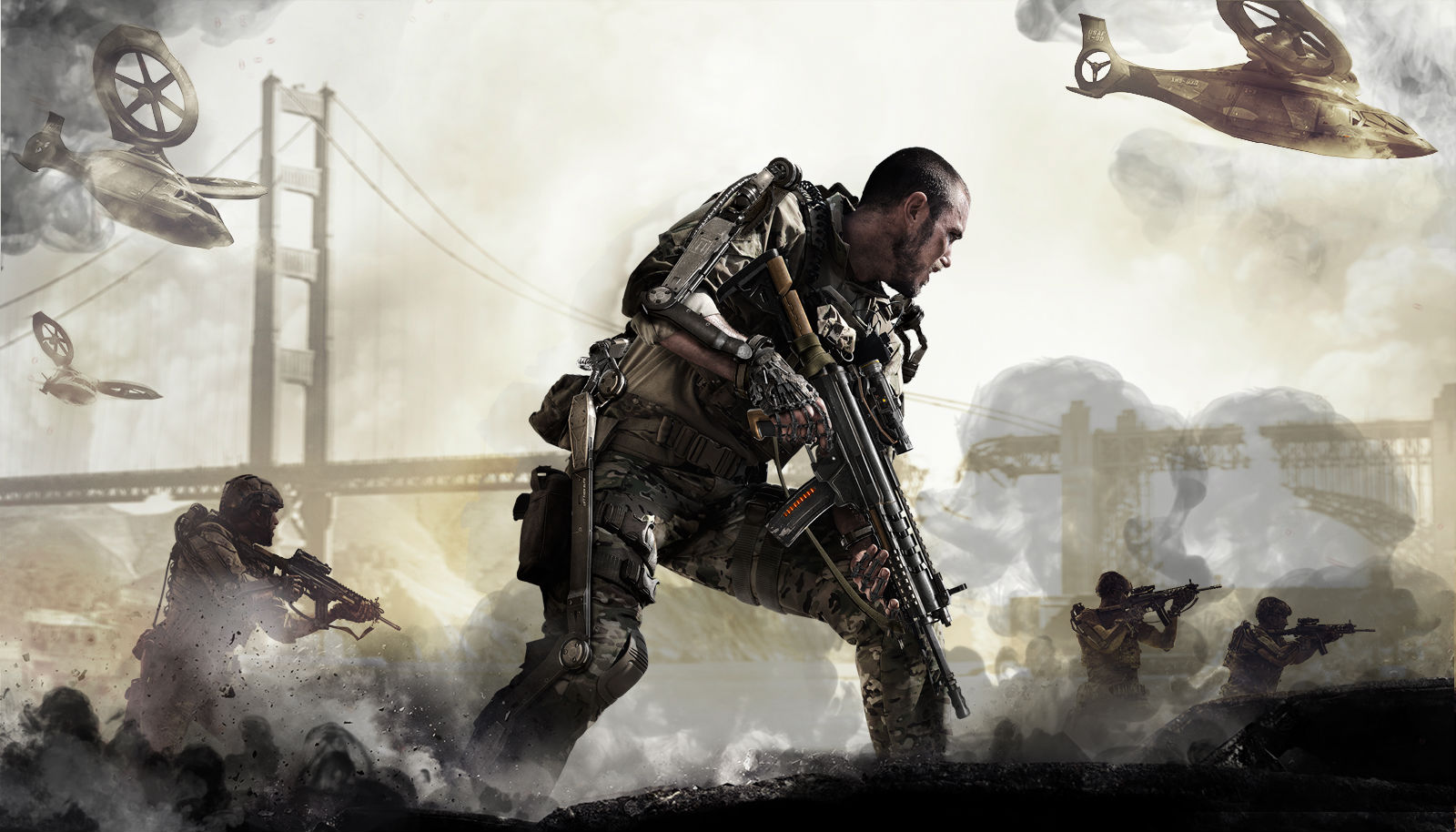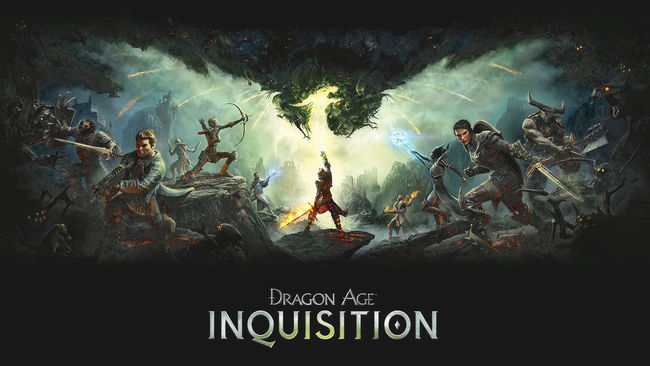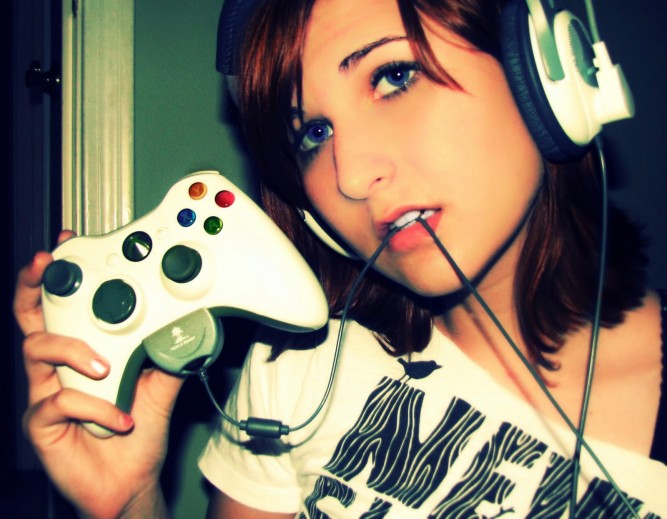“Bro Games” and the Gamer Divide

In addition to having sunlight, croissants and puppies, the real world plays host to a number of less-than-awesome monsters. Attempt to stifle your shock when you read: discrimination, sexism, bullying and overt hostility exist from high school hallways and leisurely park strolls to interactions with coworkers and doors to career opportunities. Could a gaming community exist as a safe space, free from hierarchy, judgment, or prejudice?
Enter the video game universe and experience a surge of power and possibility. Your controller becomes your sword, its your buttons your mouthpiece. Any user can make friends, conquer enemies, romance paramours and save realms/cities/galaxies. The groundwork for a community with inclusion and opportunities for equality is present. Of course, following the historical trajectory of world domination, the privileged have found a way to hijack the “Gamer” title, making the same games that embrace some alienate others.
The long-standing stigma against gaming has not gone away—simply shifted direction. A shift that, one could argue, has its benefits. The public at large is less inclined to dismiss gamers with stereotypically negative attributes, which is a nice way of saying that your coworker or yoga class acquaintance probably won’t deem you “nerdy” or “reclusive” when you disclose your interests. Judgments are however passed within the community based on what is being played.
Video game genres have become a new mode for those with social capital (read: the straight white male archetype) to categorize and effectively “other” fellow gamers, or classify a subsect of gamers as “not one of us”. In plain terms, video game genres are being used to separate the “bros” from the “no’s”
Gamers and the Sense of Community
The opposing parties in the gamer divide begin to form before we’re even conscious of this nebulous Gaming Civil War. While a pre-pubescent role player secretly logs hours in a basement den, umbilical chord to console, a parallel group of players comes into form, separate, louder, and adamant in their identity.
The first category of gamers (G1) is a broad-spectrum term for role-players and those who prefer the long-plot format. The community they experience is one of common interest, discussion, and with potential for observation more so than conjoined participation. Members of this community may discuss plot points in online forums, form connections with others through arguing the in-game specifics—To Cure the Krogan Genophage, or Not To Cure, that is the question. Or munching on popcorn on the adjacent couch, theatre style, while your little brother plays through the BioShock franchise for the first time. Role Players/Role Playing Gamers may benefit from shared experience despite the actual game play occurring alone. While Role Playing can hinge on a social experience (Warhammer; Dungeons and Dragons; LARP) the genre as a whole is unfazed by the absence of multiplayer opportunities, maintaining its stability when comprised of solo gamers.
Among teens and tweens, the opposing party (G2, the “Confederates” in this analogy, probably) has been known to take shape as a throng of socially content, cis-male classmates, whose Facebook blasts involved invitations to other classmates for Halo parties: BYO television, controller and Xbox, congregate under one roof, eat melted Velveeta from a crockpot and assault ones’ teeth with Mountain Dew in the company of your favorite 10th-grade chums. Encyclopedia of Education contributors M. E. Doyle and M. K. Smith argue strongly in favor of the social and psychological need for this sense of real-world community.

Introverts and extroverts, RPG’ers and mutli-player addicts, Yankees and Confederates: separate groups, both touting the Gamer banner. Both benefit from the cognitive, motivational, and emotional perks of gaming, as delineated in psychologist Isabela Granic’s “Benefits of Playing Video Games“. Both cultivating a virtual, as well as real-world identify.
Add a few years to the equation and see the games and individuals change, but whether they manifest as the hockey team congregating for Madden or club members sitting in their individual basements, hooked up to headsets, shooting each other through the magical connection of Xbox Live, the social bonds of Group 2 are strong. Geography is negligible for these hang outs, fortifying the friendships and experiences of pre-existing groupings.
The superficial rundown of the second group, along with any socially-mobile group, is a stamp of popular approval. The cultural green light is granted to these community-based cool kids. This prominent, approved group is one that considers itself to be comprised of Gamers. The entire gaming community benefits directly from their exposure. It’s the secondary confrontation, not from society-to-gamer, but of gamer-to-gamer exchange that prompts exploration.
If you’re a relatively antisocial female fantasy/sci-fi addict rather than an athletic, gregarious first person shooter, and the conventionally social G2 members have already taken the gamer title, what does that make you?
A sample Role Player v. Bro-Gamer interaction might go something like this:
Bro: “I hear you game? That’s so rad!” (+1)
RP: “Yeah I’ve logged a lot of time on the ‘ole xbox.” (+1)
Bro: “Your boyfriend must have played a lot of COD I take it.”
RP: “Oh, no, nothing like that. I got into video games on my own. I was 12 when someone bought me Zelda for Christmas, no looking back, [laughs].” (-1)
Bro: ?
RP: “Come on, you know Ocarina of Time. It’s an RPG, I mostly play RPGs?” (-1)
RP: “…today it might be more like Mass Effect?” (-1)
RP: “It’s, uh, you play as Commander Shepard, with a team of aliens, in rapid transit through space as you fight the Reapers and …. Oh you have an appointment you forgot about? It’s right this second? Okay well it was nice talking to you.” (-20)
Bring on the Bros
Call of Duty, FIFA, Halo and the like, fall under the broad umbrella categorized here as “Bro Games”, named trifold for their general camaraderie, their often gender-specific appeal, and for a very dry sense of “let’s call a spade a spade”. Games of this category tend to be low-plot, multi-player, often first-person-shooter franchises with a heavy emphasis on real-world connectivity and community. While options are made available to play with non-human computer players, or with randomized online pairings, these games serve foremost as a social lubricant for those who are already social.
Initial thesis included, there’s more than one way to skin a cat, as they say—and why do they say it?— This violent, feline-unfriendly idiom nods at both the variety uses of those games and the number of ways in which we socially connect. No one statement can truly categorize or speak for all gamers, their motives, their social environments, or their overall experience. That being said, let’s plough forward with conclusions based on our experiential generalizations.
Contrasted against the real-world Bro Game atmospheres, and even the real-world discussion communities throughout G1, long-plot RPGs boast the opportunity to create new social realms with supporting characters, inventing meaningful pseudo-social interactions through choice-filled plot points and a plethora of outcomes, some canon, some merely the illusion of out-of-canon effect—a discussion for a different time.

Perception Meets Reality
G1 might feel isolated at worst and disinterested at best when playing a Bro Game, but it isn’t solely the inter-group game play that creates division. Conversations like the one above between G1 and G2 often deepen the chasm and create additional alienation.
Is the perception of these interactions representative of real-world feelings? Conversations with both bros, and some decidedly feminist non-bros, help to illuminate the Gamer Divide.
Jo, 23, is in athletics and strongly prefers multi-player games
Seth, 25, is a licensed EMT, and participates in mutli-player functions and similarly enjoys RPGs
Kyler, 20, is a certified welder and enjoys RPGs
1) What is the appeal of multi-player games (COD, Halo, FIFA, etc).
Jo: The appeal of multiplayer games is the ability to compete and compare your self to other gamers. You are able to win and show you are a better player than others. Also you never know how the other person or persons you are playing against are going to play. You may have to adapt your style to combat what is being thrown at you
Kyler: I don’t personally like multiplayer games that much. I’d say it’s just a mind numbing activity. I do however, feel that the multiplayer gamer has become a norm in our culture and isn’t seen as a nerdy.
The more I think about it… perhaps the appeal of multiplayer games lies within the potential for instant gratification as you often level up and get new things as well as showing off your achievements and the like. RPG and strategy games take the course of a delayed gratification.”
Seth: It’s the simplest way for me to keep in touch with my friends across the board. I could think of at least 5 guys I would no longer be in touch with if we didn’t game at night
2) How would you say the average multi-player gamer perceives RPG-heavy gamer? (someone who only plays COD perceiving someone who plays Dragon Age)
Jo: I think we perceive them as… different.
Kyler: I do believe that those who tend to play the shooters such as COD and Halo or Battlefield see the RPG gamer as still a nerd. Given that there’s a lot more depth in the RPG genre it takes more of a thinker or simply a fantasizer to truly enjoy its longevity.
Seth: Games have so permeated culture that different camps have developed. It’s pretty safe to say we’ve overcome the “gamer” stigma. I don’t think anyone thinks of them as lonely recluses anymore. When getting to know someone I often ask if they play games. Then I quickly follow up with what kind of games they play. If the games they list are solely sports games I can gauge how close (or not close) we will be as friends; I’m sure it’s the same in the opposite direction. I love me some RPG and I can see the light dim in some people’s eyes when I list off my favorite games
Bro gamers may be responsible for the “othering” of RPG gamers, but the role players can’t claim sanctuary from discrimination within their own camp.
According to a 2014 survey by the Entertainment Software Association, female gamers age 18 and up make up 36% of the gaming population.
A 2012 effort by the Software Usability Research Laboratory published its efforts in determining differences between male and female gamers in terms of video game usage, preference, and behavior. While they named the primary differences contrasting “violent” and “non-violent”, their terminology could have been swapped synonymously for “shooter games”—largely multi-player—and RPGs, which are plot, rather than violence driven.
This is not to say that women don’t benefit directly from the recreational activity of multiplayer video games, whether in predominantly female groups or in integrated friend groups, but the strongly tailored cis-male audience of Bro Games does add an isolating factor to the genre.

Women are breaking down walls and bashing in the doors to the gaming industry. What kinds of games are those women playing? The male-centric appeal of Bro Games reflects as disproportionate to the comparatively gender-equal appeal of RPGs. It’s worthwhile to note that even though RPGs may be more attractive to women than multiplayer games, the secondary layer of judgment between gamers harms what could be a cohesive community. The genres themselves, though insular, are often breeding grounds for gender-based discrimination. (Read this excerpt from Sam Magg’s Fangirl’s Guide to the Galaxy to kick neckbeards accusing you of being a Fake Geek Girl to the curb, and to source the aforementioned ESA study.)
“Othering” and the Video Game Experience
Historically, humans have loved to judge each other, and no one does that better than the privileged v. the marginalized.
Rather than creating a platform for unity, a way has been found for video games to facilitate new opportunities of hierarchy creation. The already powerful are shifting their criteria for judgment from “are you good at football” or “do you drive a nice car” to “are you an EA Sports kinda guy or do you play World of Warcraft?” Video Games can be used by the hegemony as a measuring stick to dictate who is socially affluent, who is acceptable, and who is “in”.
The Bros may be Gamers, but they do not have monopoly on the title. Role Players have the “G” built right into their acronym, after all.

Disparaging looks from society’s normal are nothing new, but there’s good news for the Nerds and Geek Girls: the winds of awareness, acceptance and tolerance are in the air. Fandom communities are vibrant. Games continue to evolve, catering to the new wave of representation. Gamers are loud, zealous, and moving to a front united.
So dig your heels in, gamers. Bros can share the real estate on the Gamer platform. Role Players aren’t going anywhere.
What do you think? Leave a comment.











I’m female and I’m conflicted myself about whether to call myself a gamer. And not because I’m worried about any associations but because it’s a bit weird, right? I don’t call myself a moviegoer or a reader. Then again, I love playing games more than I love going to the movies. I play games more than I read books, though my favorite books trump my favorite games.
I call myself a “reader”. It makes me feel smart.
Interesting point. I just made quinoa and vegetables but I don’t call myself chef.
Well I *do* call myself a gamer, not because I’m a casual gamer but because it envelopes most of my personal time, a portion of my professional time, and steered my educational pursuits. So absolutely, the title isn’t for everyone, and no one needs a label, but if you feel like the shoe fits, wear it.
When I first started playing wow there were guilds that had age requirements. I didn’t understand why at the time that existed, but the more online games I play I’ve come to get it. I don’t think it would be a stretch to say that your average ‘gamer’ is less mature than a non gamer, combine that with a callous attitude stemming from a young age and you’ve got a recipe for a headache, quickly followed by two fingers of scotch.
Being a “gamer” is ultimately meaningless, poorly defined, label. You do not need it, just be you. Just be awesome.
The video game industry is growing so fast. I wonder how the “gamer” title will change as the business expands to more demographics.
A very significant portion of gamers play both your groupings of games. I played both Halo, Battlefield, Dragon Age and Fallout. As have most players I have met over my time. This experience is anecdotal, and not a large group sample. However, simplifying people into two opposing camps based on the games that they play isn’t truthful. There is a massive cross pollination between the two groupings, it also is as you say “othering”.
There will always be exceptions to every rule, but if we never generalize we’ll never further knowledge, opinions or discussion.
Aridas, I’m not sure that you actually read the article because the author clearly nods at the fact that these are generalizations. And talked about the fact that people play in both groups. What the piece is talking about definitely happens and for you to dismiss that because you have personal experience otherwise is ridiculous.
I read your article with great interest. Did you ever see the Law and Order: SVU where a female gamer who owns a company is kidnapped and raped? It shows the ultimate misogyny of the gaming industry and the hostility towards female gamers and creators. However, it is an old episode.
I am not a gamer but find it interesting that games have become so male dominated. I started playing video games back in the 80s. I am old. But back then, we all played together so I had no idea this problem existed. I would have that the opposite would happen. Why do you think that games have become so male-dominated? I am asking as one from the Ms. Pacman generation. What do I know about gaming today? Pretty much nothing.
This industry has a LOT of problems. A LOT. And, yes, I don’t believe enough is being done to combat and challenge outdated, horrid ideals and behavior, from both sides. We can, and should, be better.
Gamers really are the worst though. We’re one of the worst fan bases of any genre or industry in all of fandom and we seemingly came out of no where 30 some years ago. Forget the movie and music freaks, we are literally the worst.
What you need to look at instead is the cultural identity (not the games/demographics of the people it points to) that is what it means to be a gamer.
I think those are two different articles in the making though – doesn’t lessen the input of one dissection of the community
I’m mixed about this. While I’m inherently proud to consider myself a ‘gamer’ – I do recognize that there’s a problem within the current descriptor of ‘gamer’.
The group that is being referred to as ‘gamers’ has become so widespread that a single description no longer works. People who exclusively play a single game are ‘gamers’ because they play games. People who only play casual gamers are ‘gamers’ because they play games. People who play all kinds of games are ‘gamers’.
And the list goes on. With all of these ‘gamers’ having different interests, moral values and gaming habits.
You’re right. And I’ve been saying this for a while. If we continue to treat “gamer” as an umbrella term, then roughly 75-80% of the human population are “gamers” since it’s estimated that many people have played Solitaire on a Windows machine. It’s not really a useful term anymore because we’ve done exactly that. You play a game? You’re a gamer.
Massive lack of maturity in the core demo of gaming.
Yup, especially in online games!
White, socially awkward, middle-class men.
I love those guys.
You can’t have a conversation anymore on the internet or in person about “video games” without someone going off the deep end spewing some bullshit or otherwise being a dick about things, even I do it. I will find the nicest way possible to be a dick about something. We’re awful human beings. Every. Single. One of us.
I invite you to visit a sports blog or message board.
Gamers are not the worst. They are no worse or better than any other self-described group. It all boils down to the fact that when it comes down to it, it’s people that are the worst. Or can be, in any case.
Good piece. At some point, a once-new form of entertainment/art becomes too pervasive to label its participants.
The term “Gamer” is flawed, it no longer functions.
I’m going to have to disagree. I think your same logic could be applied to “Hipster” since the term has lost its original meaning and drifted from intent, yet the word still successfully conjures a specific image and communicates an idea, making it a successful term. “Gamer” may be broad, general and not accurate to its original definition, but the title functions in its ability to communicate an idea.
I don’t consider myself a gamer, perhaps because I don’t play a variety of games or because I’m quite modest. I just know I like playing games and if others see me as a gamer, than fine see me as a gamer but I don’t know whether I’d call myself that.
What a great read! I don’t know if I’d call myself a gamer, but I like playing video games. Growing up, most of my female friends didn’t play video games, but all of my guy friends did.
I wonder if there were “movie-watchers” at the turn of the century who were considered “nerds” until films became mainstream. Either way, at some point, we realized that almost everyone watches movies and we needn’t separate them. What one enjoys and does with her or his time should not have to define anything else about them.
Really good read. I don’t think that Gamer is going away. But we do have to fight to keep the negative perception out of it.
I feel about being a gamer the same way I feel about being an American, incredibly proud and equally ashamed.
You can be ashamed to know that there might have been missed opportunities for improvement.
This was a really interesting read. As someone who identifies more strongly as a Role-Player, the rise of Bro Games has definitely made me personally feel less inclined to identify myself as a gamer. The label stopped functioning for me as the games I played weren’t in the socially accepted majority, the fact that my identities don’t match up with the typical bro gamer’s almost notwithstanding. Because of it all, I’ve been on a quest, if you’ll forgive the term, to reclaim my nerdiness and this piece has really helped me pinpoint at least part of the source of the divide. Thank you!
Thank you for your comment! It means a lot! And I tried to address that these are broad generalizations, but it’s definitely a phenomenon I (and people in my circle) feel and experience too, and which made it feel worth opening a dialogue.
Absolutely. You have my thanks for your generosity in sharing that with us.
It’s not gamers. It’s assholes. Why can’t we just call them assholes? Why does the identification of “Gamer” need to be derogatory shorthand? It’s assholes.
Sometimes we’re unwillingly a part of a group that’s got a bad reputation, or labeled as someone who is a part of a group with a bad reputation.
My absolute first encounter with the ‘gamers at large’ in real life aside from people in my social circles was at Gamescom last year. It was absolutely terrible. I was ashamed to call myself a gamer after that, and i truly love video games, as entertainment, as art, but here i am, unable to call myself by definition ‘one that plays video games’ because that group of people is so vile, hateful and horrible it’s not even funny. If there’s a subculture brewing called ‘notgames’, i wish to be a ‘notgamer’.
I enjoy both games that can be classified as “Bro” and role-playing games and see the division between the two genres illustrates how sexism works perfectly. Men enjoy role-playing games as they are tailored to be genderless, but women have harder time getting into the bro game community. Luckily there are several multiplayer games (Overwatch, MMOs) that appeal to women so it’s not like all multiplayer games are completely off-limits for them.
Thank you for this insight, I absolutely agree with your parallels!
I read the article with great interest. But I think the gaming scenario depends on demographics. Back home in India, Gaming is thought to be restricted to childhood only. Adults do play but are often looked down upon and mocked of being childish.But things are way different in the west. I love playing games whether its sickness or health, happy or sad, its my way of relaxing.
i think the idea of gender in games is an important one, but this author offers a very false dichotomy in that the types of games in question (RPGs and shooters) are enjoyed by many of the same people. in fact, while the author suggests that RPGs are non-violent and therefore not bro games, the SURL study cited in this article (http://usabilitynews.org/video-games-males-prefer-violence-while-females-prefer-social/) found that men tend to prefer RPGs more than women. even more confusing was the author’s focus on mass effect, a decidedly violent, militaristic, macho game no matter what gender the player/character is.
plus, as others have already hinted, identifying as (or just being) a gamer at all is a strong indicator that you’re on the introverted side of the social spectrum, and i didn’t see much evidence that “[bro games] serve foremost as a social lubricant for those who are already social.”
Good article but I agree with the above comment. There is a lot of evidence to show bro games extend to the non violent and RPG’s.
I found this article helpful and informative.
Interesting and pretty impartial article. I’m a gal who games and like many gals I know – I play games all over the spectrum. Overwatch and TF2 would both likely make my top 20 favourite games and both have hundreds of my never-to-be-seen-again hours. But I also adore being engrossed in character and story through the wonders of RPGs, having just finished Fire Emblem: Shadows of Valentia.
I feel that, all types of people play all types of games. Enjoyment of an RPG or a shooter comes more down to interest and preference on a personality level, not so much a gender level. A bunch of my introverted friends join me online to meet new people and shoot up the baddies on Overwatch each week, and some of my loudest and wildest extroverts get into debates for hours about Dragon Age: Inquisition and its failures and successes.
While I think its somewhat silly to segregate gamers into categories and talk of what games women play vs. what games men play, I also think it’s very important to look at gender in gaming.
A lot of the time these studies come out on what games different genders play in order to make men feel better. A lot of men seem to feel threatened by the existence of women in the gaming community and their expectation of equality and representation. So statistics that suggest that women are sticking to mobile games, farming simulators and Bioware games all help men feel more comfortable that women aren’t REALLY there, they just hang around in the background, making them easier to ignore.
At the same time, more talk about representation in games (not just female but LGBT+ and POC) fills me with joy – when it comes from the right perspective. It might sound extreme but I don’t want to read another IGN male-written article on “how many women are REALLY playing COD?”, I want to read articles and watch videos and hear the perspectives from the minority and how they feel in the gaming world and what their experiences are.
As a women who is harassed online almost every night I speak into voice chat, hearing another man’s voice saying “women don’t play games” and “suck it up princess” in comments and articles is meaningless to me.
It’s refreshing to read an article that while I may not wholeheartedly agree, is from an objective place and from a female perspective – thanks!
Another thing to consider is the competitive nature of multiplayer vs the completionist nature of single player experiences. (I tend to notice that people who love the competition care about the leaderboards where people like me care more about unlocking hidden characters, trophy lists, and things of that nature).
I’m a very non competitive person by nature, and really don’t care about beating someone else in a game, but instead want to finish every single challenge the game presents. In this sense, conquering the game as an obstacle means infinitely more to me than doing better than some random human where the game is simply a tool used to facilitate the contest. On the other hand, there are people who live for that sort of thing, an others who enjoy both.
There’s a fairly interesting quiz that determines a person’s motivations for games at https://apps.quanticfoundry.com/surveys/start/gamerprofile/. The important thing is to play games for the reasons you like, and never let anyone else tell you you’re having fun wrong.